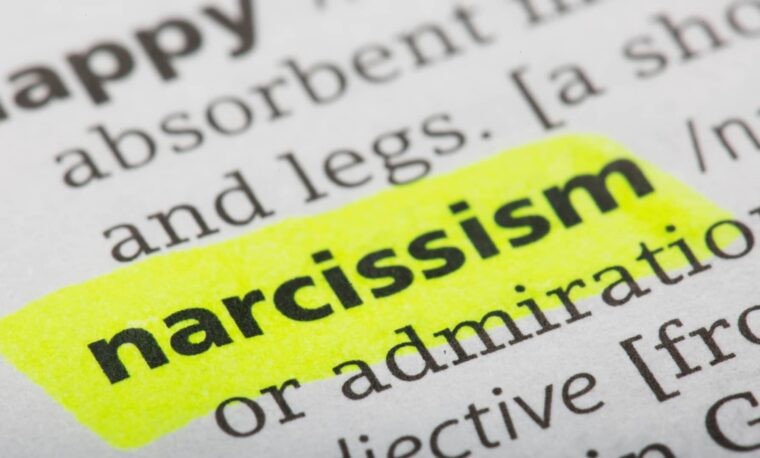Personality disorders
The word ‘personality’ refers to the pattern of thoughts, feelings and behaviour that makes each of us the individuals that we are. Generally, our personalities don’t change very much, however, it does develop as we go through different life experiences and as our circumstances change. We are usually flexible enough to learn from past experiences and change our behaviour to cope with life more effectively.
Someone with a personality disorder will usually think, feel, behave or relate to others differently from the average person. They might have a more limited range of emotions, attitudes and behaviours with which to cope with everyday life. Personality disorders are one of the most misunderstood and stigmatised diagnoses in mental health.
Psychiatrists in the UK tend to use a system that identifies 10 different types of personality disorders, which can be grouped into three categories:
Suspicious
- Paranoid
- Schizoid
- Schizotypal
- Antisocial
Emotional and impulsive
- Borderline (one of the most common types)
- Histrionic
- Narcissistic
Anxious
- Avoidant
- Dependent
- Obsessive-compulsive
One person may meet the criteria for several different disorders, while a wide range of people may fit different criteria for the same disorder, despite having very different personalities.
With professional support and treatment, many individuals with personality disorder can recover.
Different types of personality disorders explained
- Paranoid personality disorder – You are likely to feel very wary of others imagining they have hidden motives, will use you, or take advantage of you. You will find it very difficult to trust other people, be suspicious and on guard. You may watch others closely, looking for betrayal, threat, hostility and menace.
- Schizoid personality disorder – You’re not interested in forming close relationships and feel they cause problems and interfere with your freedom. and tend to cause problems. Other People will see you as a loner as you prefer solitude and few things in life give you pleasure.
- Schizotypal personality disorder – Making close relationships is extremely difficult and others say you are eccentric and think differently. You might believe that you can read minds or have special powers.
- Borderline personality disorder (BPD) – You may feel that you don’t have a strong sense of who you are, act on impulse which you then regret, suffer mood swings switching from one intense emotion to another quickly often with angry outbursts, experience brief psychotic episodes, harm yourself and think about taking your own life. You may have a history of broken relationships and a tendency to cling to damaging relationships because you are terrified of being alone.
- Histrionic personality disorder – Because you love the excitement and don’t tolerate boredom, you may behave recklessly, impulsively, flirt or be provocative to remain the centre of attention, you find others influence you easily and feel at ease as the ‘life of the party. You are dependent on approval and may have a reputation for being dramatic and overemotional.
- Narcissistic personality disorder – Special reasons make you different, better or more deserving than others, but because your self-esteem is fragile you rely on others to recognise your worth. If others ignore your special needs you feel upset and resent others success putting your own needs first. People are likely to see you as selfish and ‘above yourself’.
- Antisocial personality disorder (ASPD) – Closely linked with adult criminal behaviour, you are likely to have a criminal record and be a heavy drinker or a drug user. Easily bored holding down a job or relationship is hard, you tend to act impulsively and recklessly without considering consequences, may do things even though they hurt others to get what you want. You believe only the strongest survive and that you must do whatever it takes to lead a successful life. You may be regarded as being selfish and hard.
- Avoidant (or anxious) personality disorder – You feel inadequate, inferior, avoiding work or social activities, expect disapproval and criticism, and worry constantly about being ‘found out’ and rejected. You feel lonely and isolated and long to have relationships but avoid these due to fear of ridicule, shame and intimacy. It’s hard for others to understand the extent of your worries and not to believe you’re exaggerating your fear of ordinary social situations. They will see you as a loner.
- Dependent personality disorder – You feel needy, weak and unable to make decisions or function without help. Others take responsibility for many areas of your life, you find it hard to disagree because you fear losing their support. You agree to things you feel are wrong and put up with other people’s unreasonable behaviour to avoid being alone. Your self-confidence is low and you see others as more capable. You may be described as submissive and passive.
- Obsessive-compulsive personality disorder (OCPD) – You are likely to set unrealistically high standards for yourself and others and generally think your way is best so you end up feeling responsible for everything. You worry when you or others make mistakes and expect catastrophes if things aren’t perfect. OCPD is separate from OCD which describes a form of behaviour rather than a type of personality.
Signs and symptoms of a personality disorder
Signs and symptoms of a personality disorder will vary from the type and the person.
However, generally, all sufferers will experience similar themes including:
- Disturbed way of thinking
- Emotional regulation issues
- Problems keeping and maintaining relationships
Treatment for personality disorders at Nightingale Hospital
Nightingale Hospital London has several Consultant Psychiatrists and Therapists that can help you through your personality disorder. You must find a personality disorder specialist that you can trust and work with on your recovery.
Treatment for personality disorders at Nightingale Hospital London can be as an outpatient, day patient or inpatient. We have the expertise in personality disorders to approach the support and treatment we offer in a personal and flexible way to benefit you the most in your recovery.
Our approach to treating personality disorders at Nightingale Hospital London combines’ individualised programmes with treatments based on current clinical evidence.
- Cognitive behavioural therapy (CBT) can help you examine your usual pattern of thoughts and attitudes and allow you to challenge ideas and beliefs that cause you problems and psychodynamic therapy can help you manage your relationships with other people and improve the way you feel about yourself.
- Dialectical behaviour therapy teaches skills to help manage emotions, improve the way you interact with others and change the behaviour that causes you the most problems.
- Arts therapies help to express how you are feeling if you are having difficulty putting things into words and group therapy is beneficial for anyone who avoids social situations or depends too much on another person.
- Medication – There are no medications specifically for personality disorder, but doctors may prescribe them to treat additional problems, such as irritability or depression. It may take some time to find a drug that works for you, and often medication may be most effective when combined with a talking personality disorder treatment.
How can friends and family help with a personality disorder?
If your friend or relative has a diagnosis of personality disorder it’s important to:
- Emphasise the positive aspects of their personality
- Make the most of their strengths and abilities
- Remember a diagnosis of personality disorder doesn’t stop someone from being likeable, intelligent, highly motivated or creative
- Good information is crucial. If your friend or relative would find it helpful, you could be involved in discussions with mental health professionals. You could act as their advocate and speak up and support them.
- They may need your encouragement to change their behaviour. Alcohol, drugs or abusive relationships can only add to problems.
- Don’t be judgemental or tell them they are ‘immature or ‘inadequate’, or ‘attention-seeking or ‘making bad choices’: everybody behaves immaturely or inadequately at times, and we all make mistakes.
- Try to help identify situations that bring out the best or worst in, them and support them in following this up.
Useful resources








